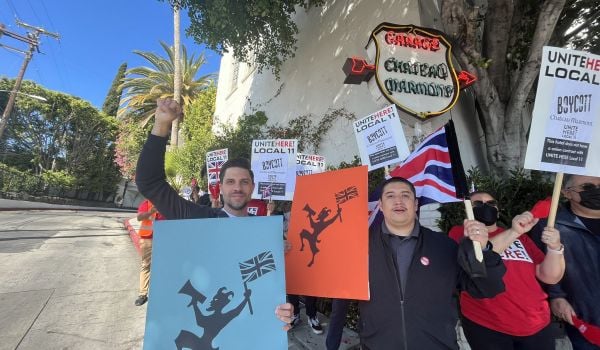Boston Pushes Private Developers to Release Diversity Plans
In 2018, private developers proposing to build on Boston’s publicly-owned land were required to disclose diversity statements. The law was an effort by the city to increase the diversity of the real estate development industry, which has long been dominated by white male developers.
The Boston Globe reports that those same guidelines have seeded the basis of the city’s newest ask of private developers: disclose the diversity of new projects—from who they plan to work to subcontractors—on private land for projects over 20,000 square feet.
Projects at least that large have to go through Boston Planning and Development Agency’s (BPDA) approval process. But after plans have been approved and submitted, there is little oversight or enforcement by the agency ensuring that developers stick to their plans, the Bay State Banner reports. It’s the first U.S. city to require such a plan from developers.
Period Products Are Now Free in Scotland
Scotland’s Period Products law, unanimously passed by lawmakers in 2020, went into effect this week, CNN reported. It requires any publicly-owned building, such as schools and universities, provide free menstrual products such as pads and tampons. The onus is on local authorities and education providers to ensure that supplies are stocked and available.
The passage of the bill is a long time coming for Scottish politician Monica Lennon, who proposed the move back in 2019. But the landmark legislation is just one milestone to end “period poverty,” a newer medical term used to define the lack of access to period products around the world, according to the Children’s Hospital of Philadelphia Policy Lab.
California Labor Bill Could Upend Fast Food Industry
California lawmakers are weighing a bill that would improve conditions for fast food workers throughout the state – and transform the government’s ability to hold fast food corporations to account for labor violations at their franchisees’ locations, Vox reports.
The FAST Recovery Act, which passed the California Assembly in January and will be up for vote in the Senate this month, would establish a council of business, labor and state representatives to negotiate minimum standards for wages, hours and working conditions for non-unionized restaurants with 30 or more locations, according to Vox. It would also define franchisors’ and franchisees’ joint liability for labor standards violations.
California has over 700,000 fast food workers, the most in any state. While it also has some of the country’s strongest labor protections, labor rights advocates say the franchise model encourages lowering work conditions and impedes the government’s ability to uphold labor standards. As CalMatter reports, the bill’s “sectoral bargaining” approach could help transform this low-wage industry into a model for others.
This article is part of The Bottom Line, a series exploring scalable solutions for problems related to affordability, inclusive economic growth and access to capital. Click here to subscribe to our Bottom Line newsletter.

Marielle Argueza is Next City’s Equitable Cities Reporting Fellow for Racial Justice Narratives in partnership with Triad City Beat in Greensboro, North Carolina. Formerly Next City's INN/Columbia Journalism School intern for Summer-Fall 2022, she’s a journalist with more than a decade of experience reporting on education, immigration, labor, criminal justice, climate and more. Her work in K-12 education is award-winning and she was recognized multiple times by the California News Publishers Association. She is a recent graduate of Columbia Journalism School, where she was Toni Stabile Investigative Fellow. Her work includes a story on Harlem’s last assisted-living facility for people living with HIV/AIDS; a profile on New York State’s first Farmers Union; and a database of deaths within the Milwaukee County Jail. She is also a recipient of other fellowships and scholarships from several notable organizations within the news industry including the Asian American Journalists Association, Association of Alternative Newsmedia, ProPublica, and the Journalism and Women Symposium.
Aysha Khan is the managing editor at Next City.
Follow Aysha .(JavaScript must be enabled to view this email address)


















